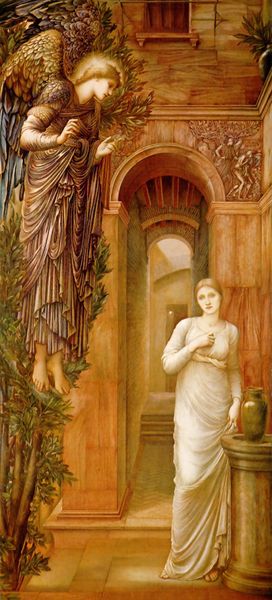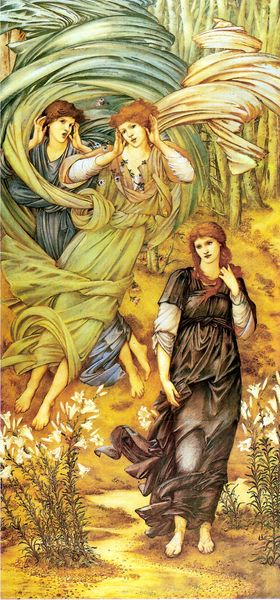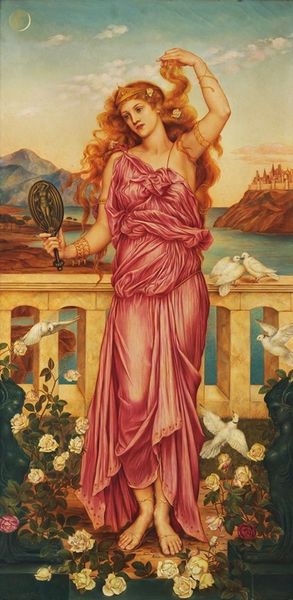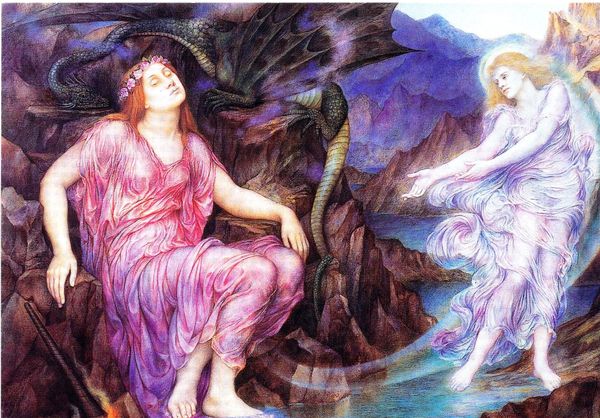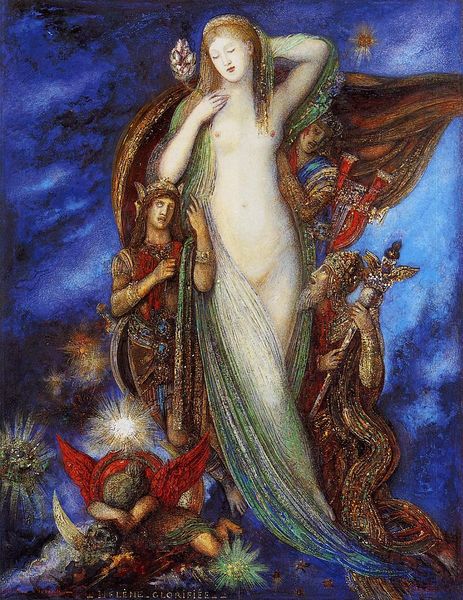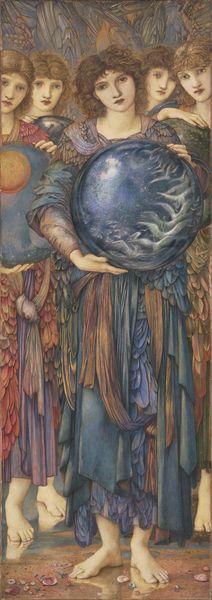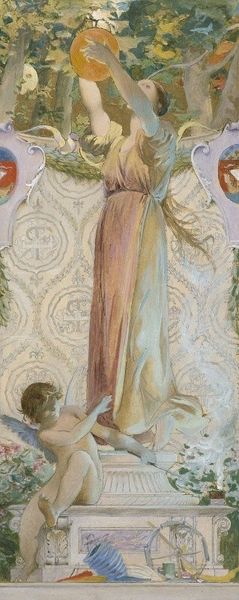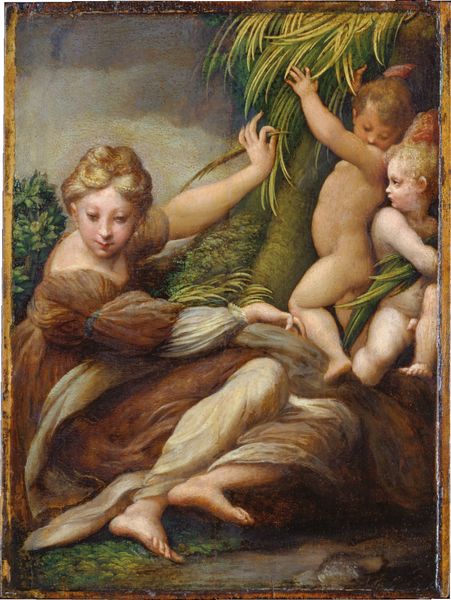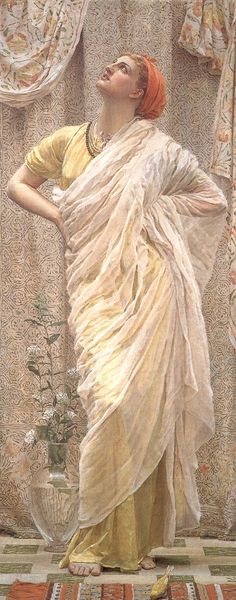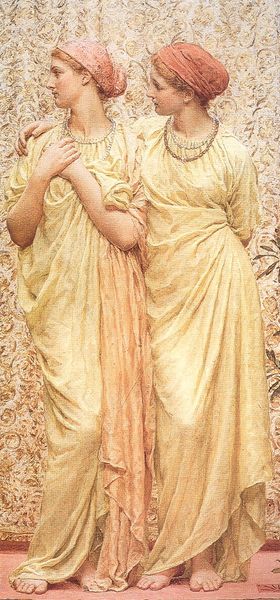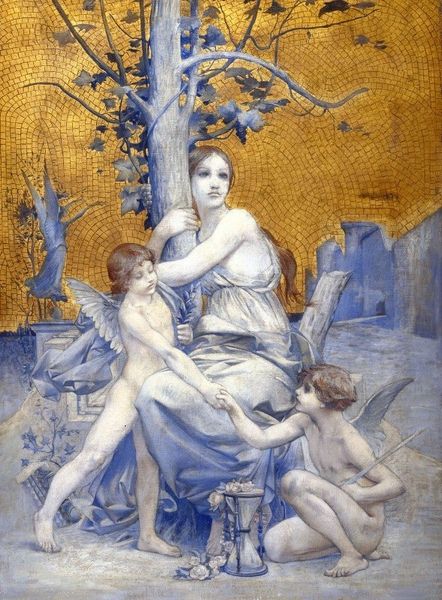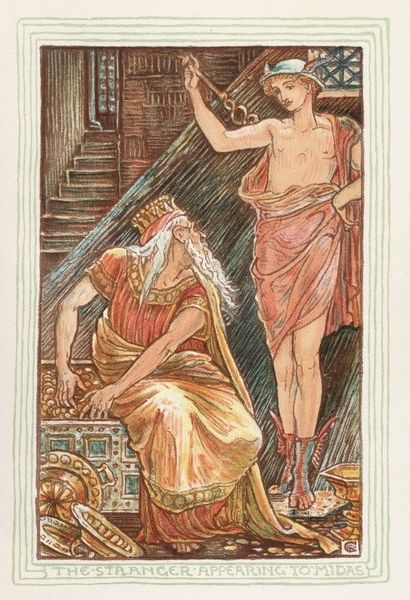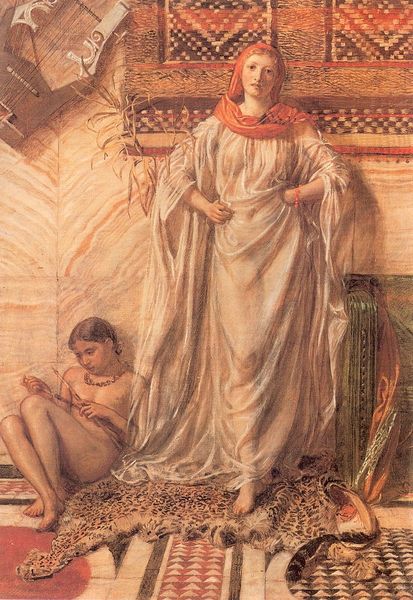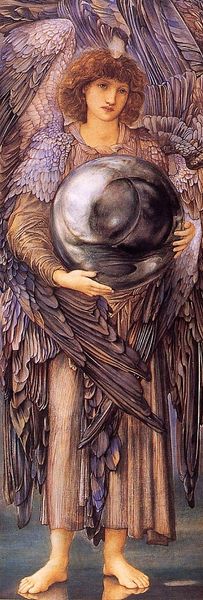
tempera, painting
portrait
allegories
allegory
tempera
painting
landscape
figuration
underpainting
mythology
symbolism
animal drawing portrait
pre-raphaelites
Copyright: Public domain
Editor: Here we have Edward Burne-Jones’s "Earth Mother," a tempera painting from 1882. I’m immediately struck by the…melancholy tenderness of it all. What layers do you see within this allegorical piece? Curator: I see a deliberate commentary on the idealized female form and its intersection with power structures of the late 19th century. Burne-Jones presents a figure that references classical archetypes of fertility and nurture, but it's crucial to recognize how Pre-Raphaelite artists often subtly challenged Victorian notions of femininity. Editor: Challenged, how? She seems like a fairly conventional representation of motherhood. Curator: On the surface, perhaps. But consider the averted gaze, the slightly somber expression. It complicates the reading of passive caregiver, doesn't it? Furthermore, think about the socio-political context. England's imperial reach was at its peak; depictions of fertile landscapes and nurturing mothers implicitly legitimized colonial ambitions. This painting could then be viewed as both celebrating and critiquing that narrative, showcasing both the beauty and the burden placed upon the female form in sustaining that system. Editor: That's fascinating. So, you're suggesting it's not just a pleasant scene, but a commentary on imperialism itself? Curator: Precisely. The "Earth Mother" becomes less an innocent representation of nature and more a loaded symbol intertwined with England's global power. Who is she nurturing, and at what cost? Editor: Wow. I had not considered that aspect at all. It really shifts the mood. Curator: That's the power of understanding context. Editor: Definitely gives me a lot to consider, thanks.
Comments
No comments
Be the first to comment and join the conversation on the ultimate creative platform.
